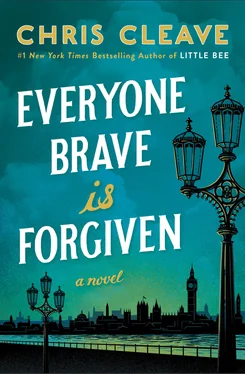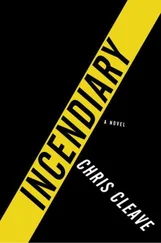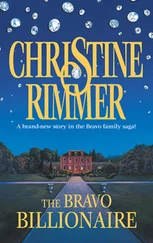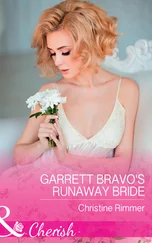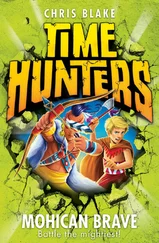The Interlocutor’s right hand rippled up and down the high notes and his left pressed out the big chords, perfectly steady and regular, a steam hammer cutting out shapes. As he played he cast his eyes over the tables, smiling at the audience, giving a wink here and mouthing a thank-you there, while his hands played automatically. His face was calm under the thick white mask of grease paint. He smiled at the table where the four of them sat, favoring them no more or less than the rest, and then his gaze moved on.
“Doesn’t he recognize you?” said Hilda.
“Can’t you see he is being discreet?” said Mary.
“We all look alike to them, is what it is.”
“Go on !” said Tom, squeezing Mary’s arm. “Go and say hello.”
Alistair saw Mary’s discomfort. He said, “I’ll bet you can’t be quite sure it’s him.”
Mary threw him a grateful look. “I’m not at all sure.”
Alistair said, “He might be the Queen of Sheba under all that paint.”
Mary nodded quickly. “I… um…”
“I move we get more wine,” Alistair said. “What does the panel think?”
“Oh, wine!” said Hilda, clapping her hands as if it were a clever new invention.
Alistair signaled and a bottle arrived almost before his arm was fully extended. He filled all four glasses, displacing whatever volume of awkwardness had accumulated. It was obvious that the entire war could be solved in this way. The trick would be to reach for a corkscrew instead, every time some brass hat ordered artillery.
The interval ended, the stage lights came up and the Interlocutor climbed up into the beam of a spotlight. He waited for the crowd to settle.
“Ladies and gentlemen. Though these times are dramatic, the greatest drama of our lives still plays in the theater of the heart, which is why our next number is a love song. But before we sing slow for you, let’s all take a moment to think of our true loves. It could be you’re lucky enough to be sitting next to them right now. Or maybe they’re far away, posted overseas. Maybe the two of you haven’t even met yet, and you’re holding the idea of each other.”
As he spoke, the sound of the air-raid sirens came again. This time it was not the choir singing it — the effect came from offstage, as the wireless effects had — and it seemed to come from all quarters at once.
“So our next song,” said the Interlocutor, “our slow number dedicated to those who could not be with us tonight, is a particular favorite of—”
The sirens swelled, cutting him off.
“Isn’t it clever?” whispered Hilda. “I wonder how they do it.”
But Alistair saw the Interlocutor’s expression. By the instinct his body had picked up in France, his hand swept the floor at his side and located his uniform cap. His foot reached under the table and drew his duffel bag toward him. As he took hold of it, he felt the hard shape of the jar of Tom’s blackberry jam. He had meant for them all to share it at lunch — perhaps with scones if the restaurant had been able to rustle some up — but now of course it would have to wait. That was this war all over: just when you got comfortable, they dropped the fire curtain.
He kissed Hilda on the forehead, told her she was adorable, and took a long, cold drink of the wine.
It was ugly when the house lights went up. The stage manager made an announcement no one could hear. People were making a racket asking what was going on, and soon the theater was a confusion of people heading for contrary exits — not in panic but without decorum, and not minding if they trod on a few feet. Everyone was in everyone else’s way. No one seemed to know if there was a shelter in the theater or whether they were supposed to try their luck in the public ones outside, and as a result the whole thing was snarled up and nervous.
“What should we do?” said Mary to Tom.
Tom looked to Alistair. “What do you think?”
Alistair thought it strange that they deferred to him. His uniform was hardly native to these gilded columns and these pink velvet seats. Civilians must surely outrank him in this theater. He laughed, then realized by their expressions how inappropriate it was. He held tight to the table. Now that he was standing, he understood that he was drunker than strictly necessary.
He looked around at the chaos of the theater, the stalls in packed disarray and the great circle jammed with people trying to circulate in opposite directions. He hadn’t a clue what to suggest.
“Miss North?” said a voice from behind them.
The Interlocutor had come down to their table. Alistair watched Mary compose herself and smile.
“You need to work on Zachary’s writing,” she said, offering her hand.
“Yes?” said the Interlocutor as he shook it.
“He uses punctuation as if it were rationed and vowels as if he had hit the mother lode.”
From above came anxious voices as the upper circle pushed downstairs.
“Might the rest wait until parents’ evening?” said the Interlocutor. “Only I came to invite you people to share our basement shelter.”
“If you’re sure it’s no trouble,” said Mary.
“Why, what are you going to do? Heckle us?”
The Interlocutor led them backstage and down into the theater’s basement. It was arched and vaulted, twenty feet from floor to ceiling at the apex of each vault and never lower than fifteen feet at the pillars. The basement was as long and broad belowground as the theater was above. It was lit by a hundred bulbs swinging on cloth-braided wire.
The Interlocutor ushered them along a narrow passage that had been cleared between the rolled backdrops and wooden facades and pantomime horses, to an area against one wall where the players and crew members were grumbling as they took their seats on wooden benches. Their voices echoed and boomed through the sound box of the basement. The mood was of annoyance — the performance had been hotting up nicely, and here was another false alarm.
“Make yourselves easy,” said the Interlocutor, and they all sat.
“Isn’t it a bore?” said Hilda. “There should be a law that they can’t do these drills at the weekend.”
The Interlocutor put two fingers in his mouth to give a whistle, and Zachary appeared from behind a rack of drapes.
“Fetch me the basin?” said the Interlocutor.
Zachary disappeared and came back with a cloth and a bowl of water, which he set before his father. The Interlocutor patted the bench beside him and Zachary sat down and grinned. “Good afternoon, Miss North.”
“Mary, please. You needn’t ‘Miss North’ me out of school.”
“Fine, then you needn’t call me Zachary.”
“Oh? What am I to call you?”
“ ‘Mr. Lee’ will do just fine.”
Mary smiled. “Very well then, Mr. Lee. I should like you to meet my friends Mr. Tom Shaw, Miss Hilda Appleby and Mr. Alistair Heath.”
“Good afternoon,” said Zachary, more shyly.
“Don’t say you live down here?” said Hilda, rather loud from the wine.
The Interlocutor looked up from scrubbing off his stage paint. “We rent a room above a cobbler’s. Which is fine except for the hammering. You might say the sole inconvenience is the sole inconvenience.”
Tom gave Zachary an avuncular smile. “And you come along to watch?”
Zachary looked down at his hands. “I help out.”
“Excuse the boy,” said his father. “He’s quiet around people.”
Tom ruffled Zachary’s hair. “No need to be shy, is there? We won’t bite.”
Alistair watched Tom in the lurching light of the bulbs, and wondered if his old friend had always seemed such an ass. Perhaps it was only the wine wearing off, making Tom clumsy and Alistair unkind. He wished he had thought to bring the bottle down with them.
Читать дальше
